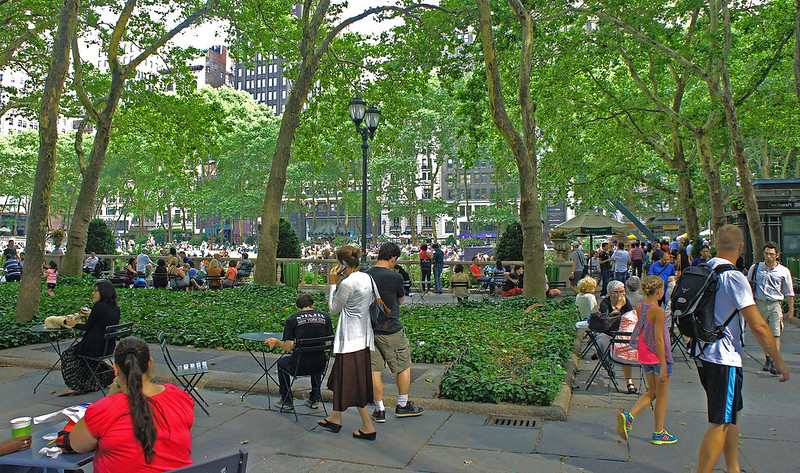
There are two types of public parks in America: city or urban parks, and state and federal parks. They have different purposes, so we’ll start with the city parks and take up the state and national parks in a later posting.
City parks go deep into American history and their purposes have expanded over time. America’s first urban park, Boston Common, dates to 1634, a few years after the city’s founding. It was intended partly as a grazing area for livestock but its main purpose was as a place for public gatherings.
As cities grew larger and more congested in the mid-1800s, reformers found a second need for parks, as places people could visit for a short periods to take a break from the noise and chaos of the city. That is, for a dose of nature as a form of mental health. (New York’s Central Park and Brooklyn’s Prospect Park with their meadows and trails are examples of the urban park as refuge.)
A final reason for city parks was added in the early 20th century, as places for recreation. This gave rise to smaller neighborhood parks and playgrounds, with swing sets, swimming pools, and basketball courts.
Today there are 23,764 parks in America’s 100 largest cities, including 13,554 playgrounds and 17,555 basketball hoops. The average city park is 3.8 acres. For the largest and most prestigious of these (Central Park in New York, Piedmont Park in Atlanta, Balboa Park in San Diego, and so on) there are nonprofit conservancies that help with maintenance and management. These conservancies deserve much credit for restoring these “crown jewel” parks, but they rarely help with smaller, neighborhood parks. These parks are almost always dependent on local government for upkeep.
City parks still function as public gathering places (think of arts festivals, concerts, or movies in the park), places for enjoying a bit of nature, and as places for swing sets and soccer leagues. Whatever your reason for visiting, if you’ve ever set foot in a city park, you can thank government for it.
More information:
https://en.wikipedia.org/wiki/Urban_park
Give the credit to: local governments
Photo by dog97209. Licensed under Creative Commons.
[…] we looked at why cities built urban parks (as gathering places, recreation facilities, and places for experiencing a bit of nature). It turns […]